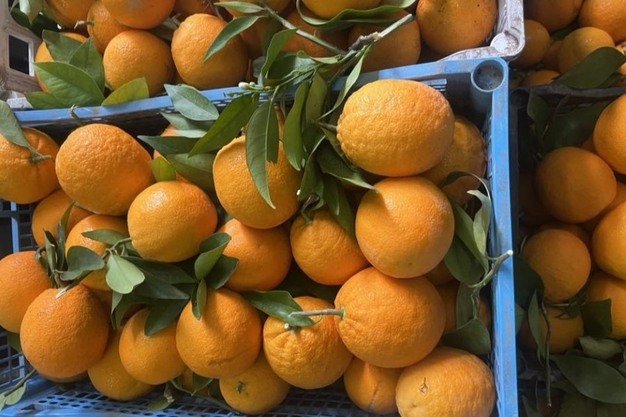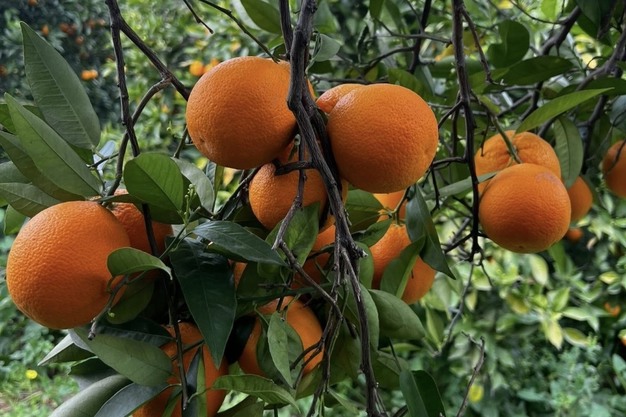The past few days have been marked by beneficial rains for the orange groves of Korinthia, Greece. As local packer Mr. Nikos Karachalios says, "The harvest is currently focused on Merlin and Valencia oranges. We do not have the abundant Valencia crop of Laconia, but our calibers are larger. In fact, we only have oranges in sizes 2, 3, and 4. However, despite the fact that such large sizes are hard to find this season, exports are not profitable at all. There is strong competition from Egyptian oranges. As a result, we end up selling our produce only in the domestic market. Even there, prices are not good. Egyptian oranges are unloaded at the Central Wholesale Market of Athens at prices €0,10 lower than ours."
 © Karachalios Fruits
© Karachalios Fruits
Mr. Karachalios is preparing for the apricot season. Korinthia is one of the most important apricot-growing regions in Greece, but it has been hit hard by the March frost. "Early apricot varieties are gone. Damage is estimated at 70% of their total potential. We will begin harvesting in early May, but the tonnage for the first part of the season will be small," stresses Mr. Karachalios.
The Greek packer makes special reference to the old, local apricot varieties: "Many of the new varieties have proved unsuitable for the adverse conditions of our region. We suffer from a severe lack of water. During summer, there are restrictions not only on farm irrigation but also on household consumption. On the other hand, the local varieties Diamantopoulou and Bebekou have proved to be more reliable. Bebekou, in particular, is almost impossible to be left unsold. It is not only highly productive and popular, but all its quality categories can be marketed. Even the lowest quality fruit is used for processing. Bebekou will be ready for harvest in June, and then we can say that we will have large production volumes."
 © Karachalios Fruits
© Karachalios Fruits
Finally, the frost has taken a toll on early apricots but also on early grapes. "Superior, Attica, and Prime varieties have suffered great losses. Frost hit them during the sprouting phase and destroyed 50% of the expected crop. This means that next season's crop will also be limited. Fortunately, Thompson Seedless has not been affected and will have a normal production," Mr. Karachalios concludes.
For more information:
Nikos Karachalios
Karachalios Fruits
Tel: +30 694 075 7727
Email: karachalios_fruit@hotmail.com
